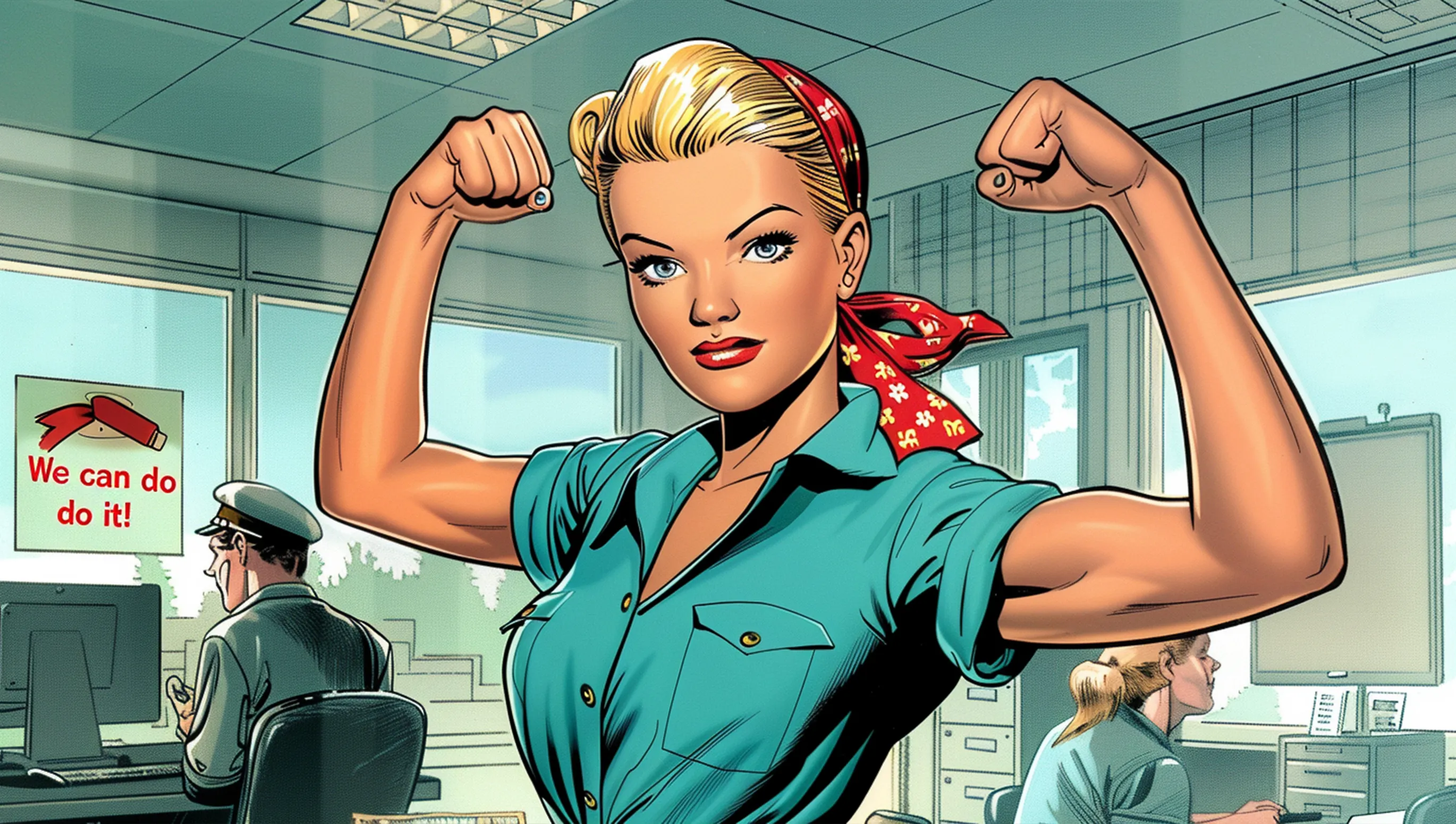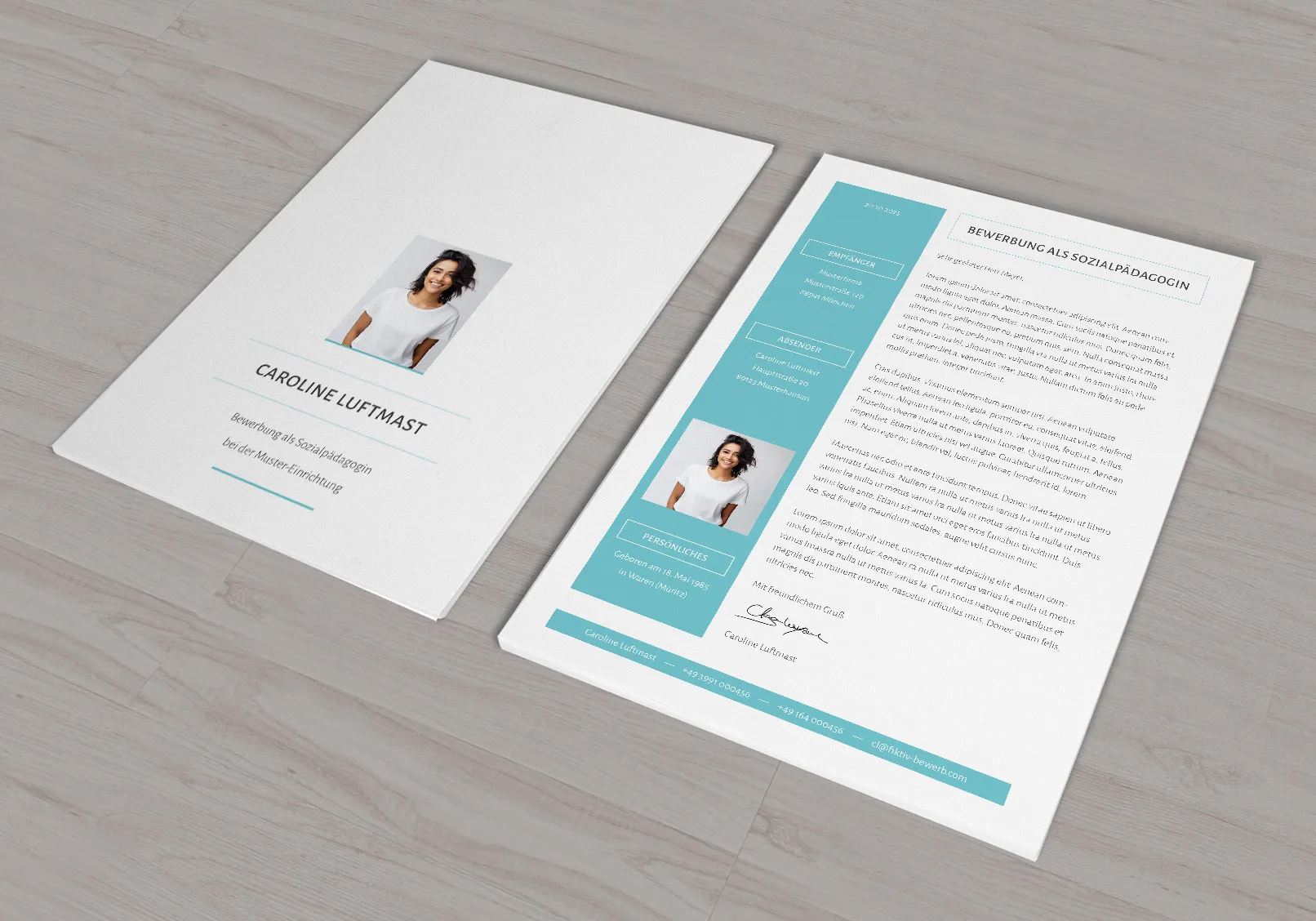Questions about strengths and weaknesses in the job interview
The job interview is a crucial moment in the job search process, where a potential employer assesses your professional skills and personal qualities and evaluates if you culturally fit into the company. One of the most common questions you will be asked in a job interview relates to your ability to critically assess your own strengths and weaknesses. Many job seekers are at a loss when it comes to naming their strengths and weaknesses in the interview. This is because it's not only about a good self-analysis but also about the ability to communicate effectively and present your own ideas.

The right approach and an effective concept in answering this question can significantly increase your chances of success. To do this convincingly, it is important not only to admit your weaknesses but also to explain how you are working to improve them. And how you will use your strengths to achieve your professional goals. In this article, I will discuss the key aspects you should consider in preparation so that you can confidently go into the interview and skillfully answer the challenging questions about strengths and weaknesses.
Table of Contents
- Job Interview: Why You're Asked About Strengths and Weaknesses in the Interview
- What Are Your Strengths and Weaknesses? Key Questions to Watch Out For
- How to Prepare for Questions about Strengths and Weaknesses
- Examples of Responses to Interview Questions about Strengths and Weaknesses
- Standard Answers about Strengths and Weaknesses
- You can list them as neutral weaknesses:
- How Weakness Becomes Strength
- This article is one of a total of eight articles on job interviews. Follow the links to read all articles.
Job Interview: Why You're Asked About Strengths and Weaknesses in the Interview
Questions about strengths and weaknesses are used in job interviews for several strategic reasons. First, they allow the employer to assess the applicant's self-confidence. The ability to honestly analyze and acknowledge one's strengths and limitations is an important indicator of professional maturity and personal development. Employers are looking for people who can critically question their behavior and effectively work on their weaknesses. No one wants Mister Perfect who does not accept any weaknesses because such candidates only see others as the cause of mistakes but never themselves.
Second, the answers to these questions help determine how well a candidate fits into the team and company culture. When recruiters identify a candidate's strengths, they can better assess his potential contribution to the company, while weaknesses help to identify potential risks for the team and project success, as well as the need for support or training for the new employee.
Third, this question tests the candidate's self-improvement ability. Employers are interested in whether a person is working on their weaknesses and if they have a plan or method for their personal and professional development. The answer to this question shows how motivated and prepared the candidate is to face challenges.
In preparing to answer questions about strengths and weaknesses, your preparation as an applicant is crucial to formulate thoughtful and constructive answers that demonstrate a deep understanding of your qualities and strategies for personal development.
What Are Your Strengths and Weaknesses? Key Questions to Watch Out For
To catch a potential candidate off guard and distract from the cliché standard answers, some interviewers ask this question in a covert and veiled manner by breaking it down into several sub-questions. You must be as attentive as possible because they may, for example, ask about strengths and weaknesses in a concealed way:
- What do you think your former boss or colleagues would say about you, positively or negatively?
- What do your friends like most about you?
- How would you rate your determination on a scale of 1 to 10?
- What sets you apart from other candidates in your opinion?
- Do you have situations where you feel uncomfortable?
- If you could change some of your characteristics, what would you change?
- With which of your recent tasks did you have the most trouble and what were they?
All these questions can help HR managers get an idea of your strengths and weaknesses. Therefore, before the interview, you should create a list of uncomfortable questions, go through them, and prepare neutral or conceptually thoughtful answers. Divide your answers into two parts: a direct answer and a part where you describe the methods you have used to resolve these matters and how you can avoid them in the future.

How to Prepare for Questions about Strengths and Weaknesses
In a job interview, questions about strengths and weaknesses are often asked to assess the applicant's self-awareness and professional maturity. In order to answer these questions successfully, you must not only list your qualities, but also demonstrate your ability for critical thinking and effective problem-solving.
Here is an algorithm that can help you prepare:
Self-analysis: Start with a thorough self-analysis and find out in which projects or tasks you were most successful and in which you were least successful. Analyze specific situations to understand which traits have helped or hindered you.
Identify your strengths: Choose 3-4 strengths that align best with the requirements of the position you are applying for. Prepare specific examples where these qualities have helped you achieve good results and where they will help you in the position you are applying for.
Identify your weaknesses: Choose 1-2 weaknesses that are not critical for the position. Think about how you can improve them. It is important to show that you recognize your weaknesses and actively work on eliminating them.
Phrase your answers: Phrase your answers in a way that sounds positive and constructive. Even when talking about your weaknesses, emphasize that you are willing to learn and develop.
Practice: Go over your answers beforehand. You can do this alone or with a friend or colleague. Your answers should sound natural and confident. They should not sound rehearsed.
Remember that the real purpose of these questions is not only to discover your strengths and weaknesses, but also to see how you analyze your behavior and strive for improvement. Responsible preparation will help you demonstrate your professional maturity and show that you are ready to face the challenges of your new workplace.

Examples of Responses to Interview Questions about Strengths and Weaknesses
With the following responses, you demonstrate that you can reflect on your skills and are willing to continue developing and improving. It is important not only to name your weaknesses, but also to show that you are actively working to address them.
Strengths
- Organizational skills: One of my strengths is the ability to effectively organize processes and tasks. For example, in my last job, I led a project to implement a new data management system. Due to my planning and coordination abilities, the project was successfully completed two weeks ahead of schedule.
- Interpersonal skills: I can communicate effectively with both colleagues and clients. For instance, I always make sure to understand the clients' needs and ensure that our team can provide suitable solutions. This approach allowed me to increase customer satisfaction by 30% in my previous position within a year.
Weaknesses
- Public speaking: One of my weaknesses is a fear of public speaking. I am actively working on it by attending public speaking courses and practicing in small groups. This has helped me gradually improve my speaking skills and self-confidence, as can be seen now.
- Communication: I struggle to remember names of new people. When I learn a new name, I immediately address the person by name and then write down the name afterwards. This approach has worked well so far, and people even appreciate being called by their name.
So the response concept to the question about weaknesses in a job interview is as follows:
- 1. This is my weakness.
- 2. I have recognized it as such.
- 3. This is what I am doing about it.
Standard Answers about Strengths and Weaknesses
If you are surprised by the question about strengths and weaknesses, there is a standard list of strengths and weaknesses that you can easily use. But only use them if they are actually true! Strengths:
- Teamwork
- Responsibility
- Initiative
- Creativity
- Reliability
- Ambition
- Resilience in stressful situations
- Organizational skills
- Desire to improve and learn
- Curiosity
- Communication skills
- Self-discipline
- Endurance
- Persuasiveness
- Determination

You can list them as neutral weaknesses:
- Poor delegation skills
- Straightforwardness
- Increased empathy
- Forgetfulness
- The desire to do too much at once
- Chaotic
- Poor language skills
- Skepticism
- Stubbornness
- Inability to say "NO"
If you use them, you should be aware that an experienced human resources manager may consider them to be clichés and may not take them into account when reviewing your application. Never say: Impatience or perfectionism. That is the absolute cliché. And by doing so, you also miss the chance to positively surprise with a clever response concept.
How Weakness Becomes Strength
Turning a weakness into a strength requires self-awareness, determination, and action. Start with an honest self-analysis to identify your weaknesses. Find out how these weaknesses can affect your work or personal life. Then develop an action plan with specific steps to overcome these weaknesses through training, practice, or acquiring new skills. Constantly review your progress and adjust your approach as needed. Involving a mentor or utilizing resources for self-improvement can be very helpful in this process. Finally, integrate the new knowledge and skills into your professional life to show that you are actively transforming your weaknesses into strengths.
To improve your position when answering the question about your strengths and weaknesses, consider the following tips:
- Preparation: Prepare concrete examples in advance that demonstrate your strengths and illustrate how you are working on your weaknesses. Consider how your strengths could be beneficial for the position offered.
- Self-Improvement: If your weaknesses could affect your performance, plan and take concrete measures to improve them. This may include professional development, workshops, courses, or self-study.
- Honesty and Transparency: Deal honestly with your weaknesses, but place them in the context of your willingness to grow and improve. This builds trust and shows that you are taking responsibility.
- Positive Attitude: Even when discussing your weaknesses, emphasize your positive attitude towards challenges and learning. This gives the impression that you are willing to grow and improve.
Remember that good preparation and the ability to speak openly about your strengths and weaknesses can significantly enhance your chances of a successful job interview and your future career.
This article is one of a total of eight articles on job interviews. Follow the links to read all articles.
From Vitalii Shynakov
